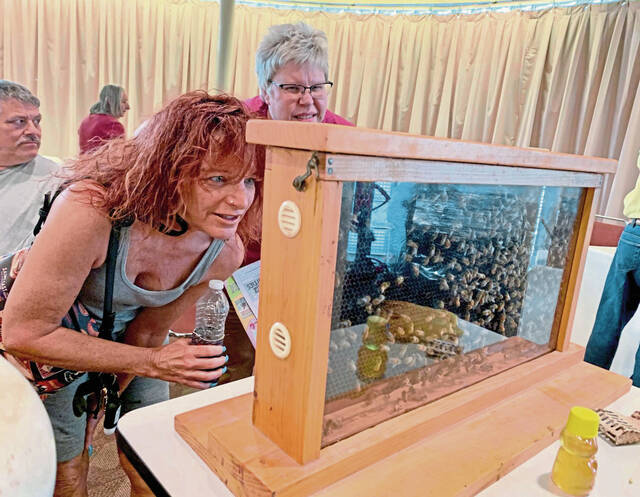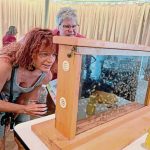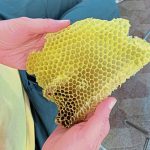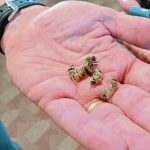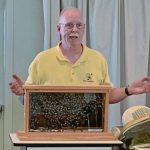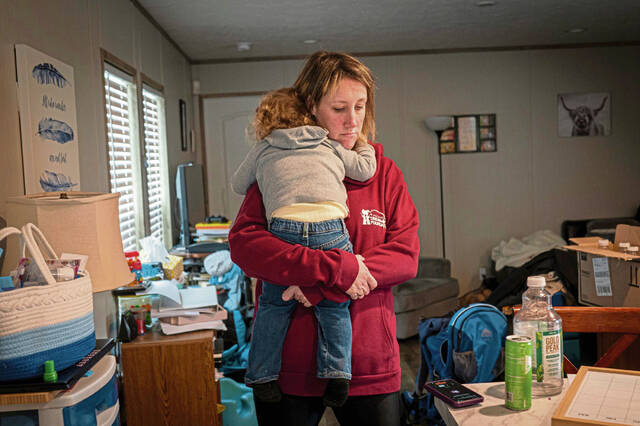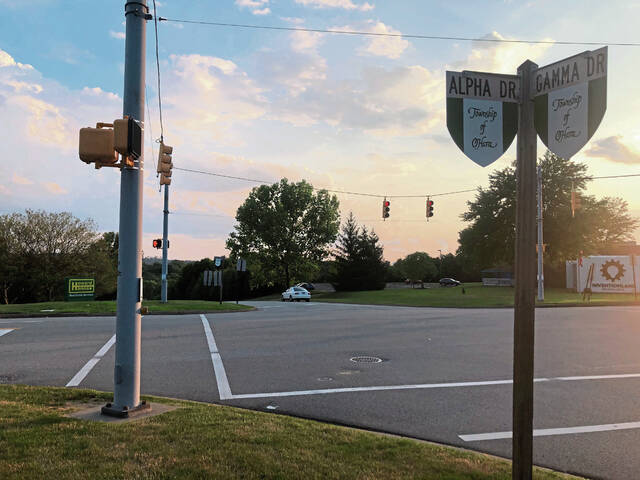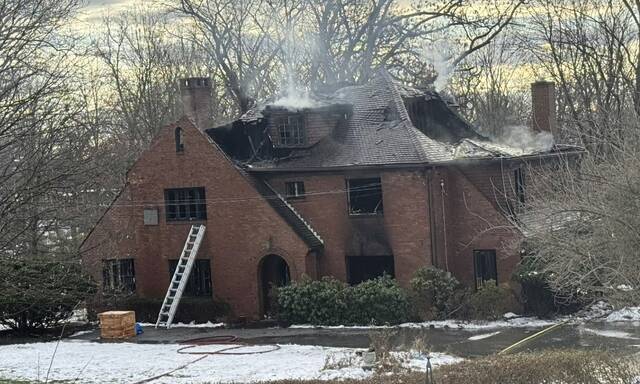A hive of bees has to travel a combined 55,000 miles and visit 2 million flowers to produce 1 pound of honey.
According to beekeeper Bill Kopar of Fawn, the insects enjoy the work — a weighty prospect that requires them to pack wet pollen into the hair of their tiny back legs to fly it back to their hive.
“Bees are cool. They’re not like hornets that are mean and cranky,” said Kopar, who raises countless colonies on his farm, the smallest registered in Allegheny County.
During a recent presentation at the Community Library of Allegheny Valley in Harrison, Kopar called bees the most important pollinators on the planet.
“They pollinate more than one-third of all the food we eat,” Kopar said. “Without them, we’d have food, but it wouldn’t be anything pretty or anything you’d really want to eat.”
“Honeybees: The Perfect Pollinator” was an hourlong discussion about the significance of bees and the alarming rate at which pollinators are disappearing.
Four species of bees became extinct in the past year, Kopar said.
Kopar, a beekeeper for 24 years, cited the use of pesticides for the rampant loss of bees, butterflies, bats and other pollinators.
“I’m old enough to remember when you couldn’t walk outside in the grass without shoes on because there were so many bees,” he said. “That’s just not the case anymore.”
Audience member Punkee Weaver of Tarentum agreed, saying she has noticed that the grille of her car remains pretty clean these days compared with years ago, when it would be covered with gnats after a drive home.
“You don’t even see lightning bugs anymore,” Weaver said.
She attended the pollinator program out of curiosity, saying she abides by a healthy living style and hoped to learn how to help alleviate the plight of the bees.
The top way to help bee numbers bounce back, according to The Bee Conservancy, is to plant a garden rich in nectar-producing plants such as honeysuckle, sunflowers and peonies.
Kopar stressed the importance of bees for produce crops. He said yield and quality would be diminished without bee pollination.
It is especially true for vine crops such as cucumbers and squash, he said.
According to the American Beekeeping Federation, honeybees contribute about $20 billion to the value of crop production.
Across the eastern United States, bees are responsible for pollinating citrus in Florida, blueberries in the Carolinas, apples in Pennsylvania and cranberries in Massachusetts.
Locally, Kopar rents his bees to farms in the five-county region, including Trax Farms in the South Hills and Yarnick’s Farm Market in Indiana.
He transfers them by trailers to help farmers double their marketable turnout, Kopar said.
After two decades, Kopar has stopped counting the number of bees that live at his home in Fawn.
He credits his flower garden for initially stirring his passion for pollinators.
“We have about 300 varieties of perennials on our farm, and we got the first box of bees to help accentuate the flowers,” he said. “Bees are better for gardens than fertilizer.”


